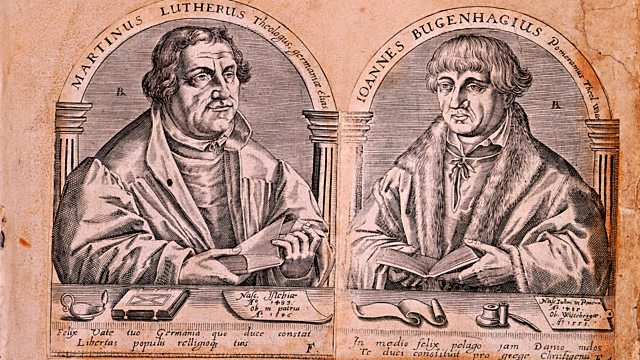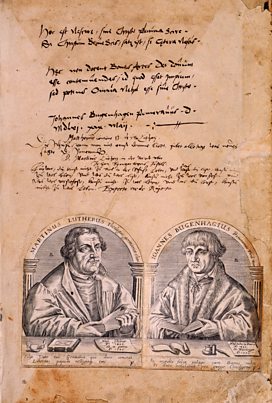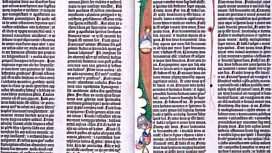Luther and a Language for All Germans
Neil MacGregor focuses on the things that bind Germans together, beginning with the story of how Luther created the modern German language by translating the Bible.
Neil MacGregor continues his series with a week of programmes with a focus on the things which bind Germans together - ranging from the importance of the great German writer Goethe, and the significance of the Grimm brothers' fairy tales, to the long-standing history of German beer and sausages.
He begins with the story of how Martin Luther created the modern German language, through his translation of the Bible.
Luther is often, in German history, seen as the Great Divider. His attacks on his opponents were pitiless, not least his writings against the Jews. But he is also, unquestionably, a great Uniter - almost single-handedly he created the modern German language which, in the centuries that followed, proved a unifying force during times of destruction and disintegration.
Producer Paul Kobrak.
Last on
![]()
See the Luther Bible and other fascinating objects from Germany.
![]()
Gutenberg: In the Beginning Was the Printer
Neil MacGregor examines how Johannes Gutenberg's inventions transformed our world.
Portrait of Martin Luther

Β© Deutsches Historisches Museum
Portrait of Martin Luther's wife

Β© Deutsches Historisches Museum
The Luther Bible

Β© The British Library Board C.9.d.3, 4v-5
Broadcasts
- Mon 6 Oct 2014 09:45Βι¶ΉΤΌΕΔ Radio 4 FM
- Mon 6 Oct 2014 19:45Βι¶ΉΤΌΕΔ Radio 4
- Tue 7 Oct 2014 00:30Βι¶ΉΤΌΕΔ Radio 4
Made in Germany: the stories of 10 fascinating objects
See photos and videos of this diverse collection of products and sculptures.
10 reasons we know Germans love beer and sausages
Beer riots and sausage snacks demonstrate a devotion to the national diet.
10 things you may not know about Germany
Degenerate art and other facts from this fascinating nation.
Podcast
-
![]()
Germany: Memories of a Nation
Neil MacGregor explores 600 years of Germany's complex and often challenging history.




